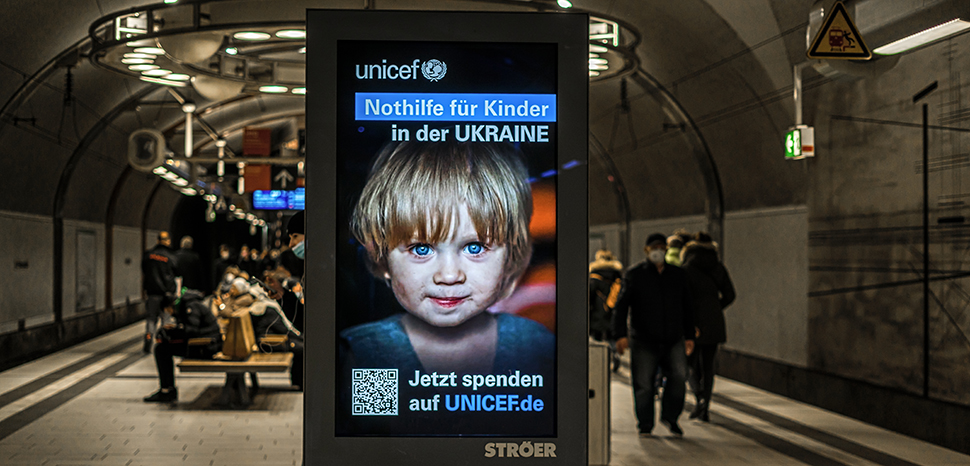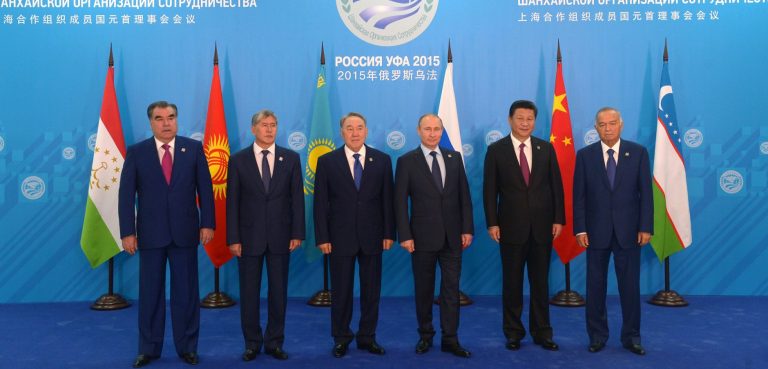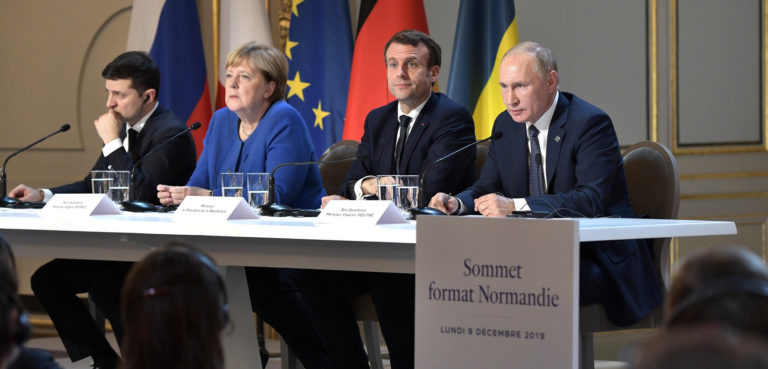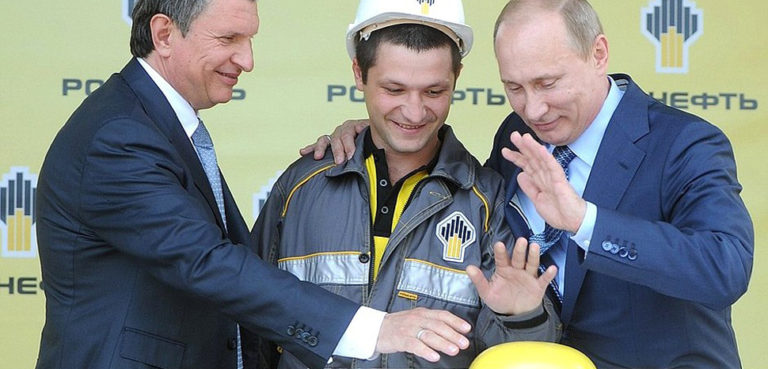Upon hearing the evidence that convicted Adolph Eichmann, Hannah Arendt understood not the monstrosity of evil but its banality. While her phrase might be used today in order to diminish the criminal, its awful truth is that the partners and facilitators of war crimes incorporate evil into ordinary lives that might otherwise have been principled. It may be this very banality that has caught President Vladimir Putin and a special clique around him in a crime against humanity.
Putin has used Russian nationalism to build unquestioning support for all his actions. His career coincides with the ascent of Kirill, Patriarch of Moscow and All Rus’, in the Russian Orthodox Church. As Metropolitan of Smolensk and Kaliningrad in February 2000, Kirill published a long, thoughtful essay asking if Western liberalism could be reconciled with orthodox Christianity. Boris Yeltsin had tried chaotically to merge the two and now Putin was taking over. Kirill concluded that liberalism gave primacy to the individual and had no concept of sin, when what was required for the individual to go to heaven was to recognize that they were born in sin and that they needed the collective to live a life of absolution. Kirill provided Putin with the rationale for a long authoritarian rule. All Rus’ (всея Руси) in Kirill’s title assumed new relevance. Initially and uncharacteristically, Putin engaged in anti-gay, anti-punk actions that were unnecessary politically. He also built an enormous statue of Saint Vladimir beside the Kremlin and attended its dedication by Kirill. Kirill has supported Putin’s invasion of Ukraine. In a Zoom conversation with Pope Francis, Kirill said it was necessary to root out Nazis and oppose NATO. Russian Orthodox churches in Ukraine were used to exert influence and have been accused of conspiracy. Kirill may have had a religious agenda too: the Ukrainian church transferred its allegiance directly to Constantinople and he wants it back.
One aspect of the Yeltsin years was the collapse of institutions that had been developed in Soviet times. A sad example was the state of Russian orphanages. A brisk business developed, facilitating adoption of Russian orphans by Western couples, particularly from the United States. When an American couple gave their adopted daughter back after three years because they were afraid that she might harm, or even kill, her adopted brother, it made news all over the world. The fate of Russian orphans became politicized. In December 2012, President Obama signed the Magnitsky Act, which allowed the administration to apply sanctions against foreign government officials, not just Russian, accused of offenses against human rights. While the act also repealed sanctions that had previously been directed against Soviet officials accused of antisemitism, it was deemed to be anti-Russian by Putin and he retaliated by banning American couples from adopting Russian children. Kirill appealed to orthodox Russians to build a new tradition of adopting orphans in order to save their souls. At the time, Russian families adopted less than 7% of institutionalized orphans. A few years later, Putin appointed Anna Kuznetsova, a radical right-wing parliamentarian as his Children’s Rights Commissioner. It was a controversial appointment that was contested throughout her tenure by Russian women’s rights groups. Kuznetsova is married to an orthodox priest, who serves in Moscow’s iconic cathedral of St Basil, and they have seven children. As commissioner, she established an advisory council which included a preponderance of priests and activists of the Russian Orthodox Church. In 2019, Kuznetsova visited Syria and met with Bashar al-Assad to negotiate the return of the children of Chechen fighters, an intervention that was applauded by Chechen leader Ramazan Kadyrov.
Kuznetsova returned to the Duma in 2021 and was replaced as commissioner by Maria Lvova-Belova, who like her predecessor is a right-wing politician. Also married to an orthodox priest, Lvova-Belova is the mother of a large young family, having adopted 18 of her 23 children. On March 9th last year, Lvova-Belova met Putin in his office. Their meeting was photographed and a transcript of their conversation is available on the presidential website. It details their plan to remove children from occupied areas of Ukraine. Lvova-Belova told Putin that she had already placed regional commissioners with occupying authorities to find children “in the fields, in stations and in shelters.” The effort is portrayed as sympathetic and protective, in case the children “need glasses or medical help.” She then asks Putin if Russian citizens, “who have a big heart,” could adopt the orphans. Putin signed a decree in May facilitating the adoptions. Lvova-Belova publicized her adoption of a child from the conquered city of Mariupol as an example. No effort has been made to hide the removal of children from Ukraine. It is instead being used to humanize a brutal war. The conversation between Putin and Lvova-Belova is a stilted dance designed to cover the topic completely. It ends with the four-point plan for the russification of the abducted children.
One year after Putin’s meeting with Lvova-Belova, the International Criminal Court issued arrest warrants for both of them for “the war crime of unlawful deportation of (children) and that of unlawful transfer of (children) from occupied areas of Ukraine to the Russian Federation.” Many accounts have been collected that document the abduction of specific children and these accounts are consistent with the Putin/Lvova-Belova plan. Networks of Ukrainian churches have been hiding children from abductors. Pro-Russian checkpoints have been singling out Christians of churches, other than those affiliated with Moscow, for harsher treatment. The ICC may not prosecute in-absentia and it is unlikely that either of the accused will ever visit any of the countries that support the court. The ICC has appealed for funds to continue to collect evidence. The London Metropolitan Police, like forces in other jurisdictions, used to have a war crimes unit. Its last case resulted in the conviction of the Belarusian Anthony Sawoniuk, 50 years after he murdered Jews in his village during the Second World War. The Met has launched a website in English, Russian, and Ukrainian to collect evidence of war crimes. Unjustified war, indiscriminate use of weapons, and the murder of prisoners are the obvious war crimes but they are difficult to prosecute. On the other hand, the abduction and russification of Ukrainian children requires a grand conspiracy of pious rationalization. The ICC warrants have placed army personnel, commission council members, regional commissioners, social workers, camp organizers, orphanage directors, and adoptive parents on notice. Almost certainly, some of the perpetrators will try their luck to visit, or emigrate to, a jurisdiction of the ICC. At the very least, the ICC warrants tell the child victims, and their captors, that they are not forgotten.
The views expressed in this article belong to the authors alone and do not necessarily reflect those of Geopoliticalmonitor.com.




